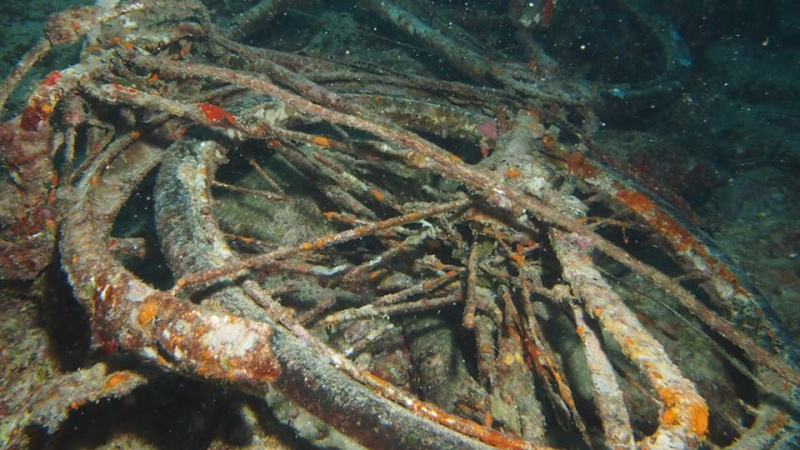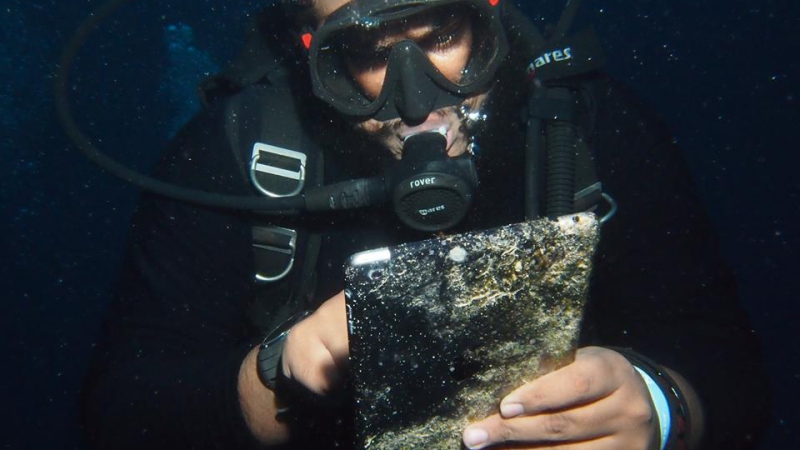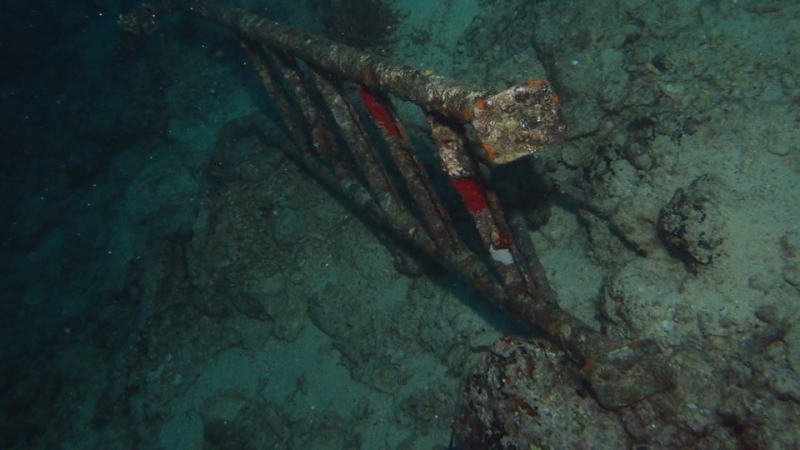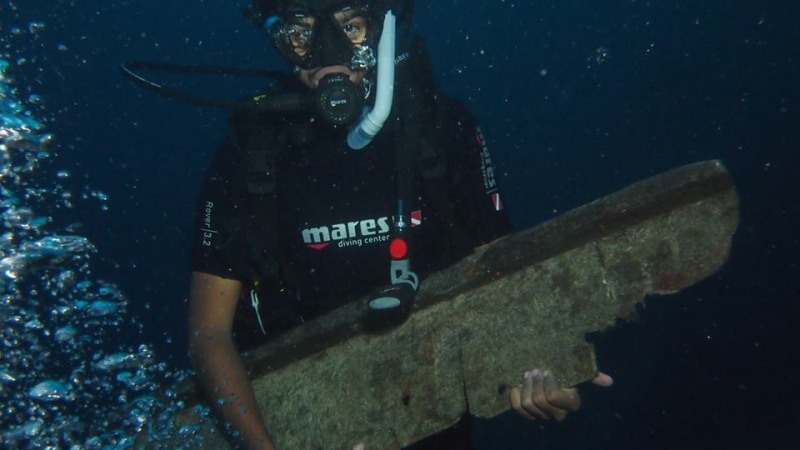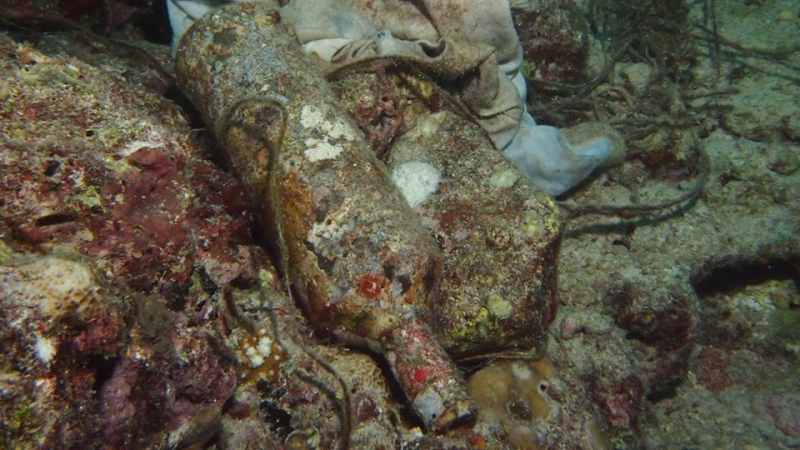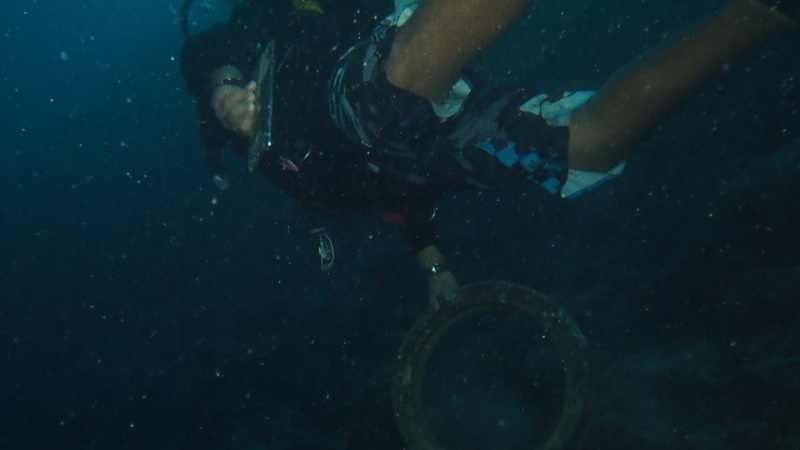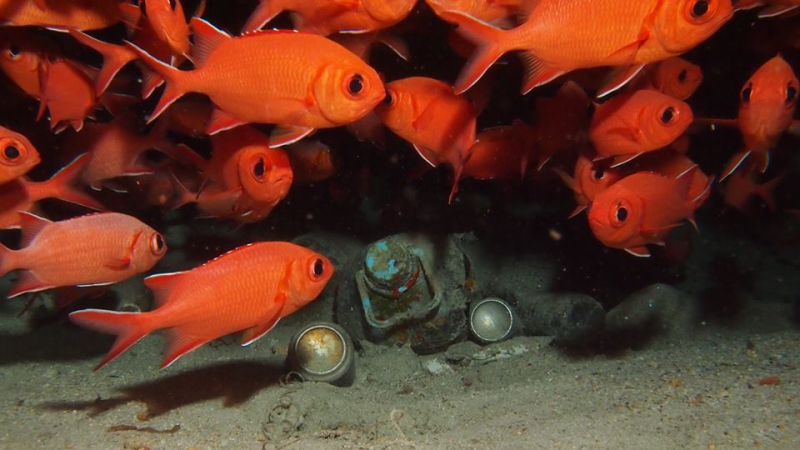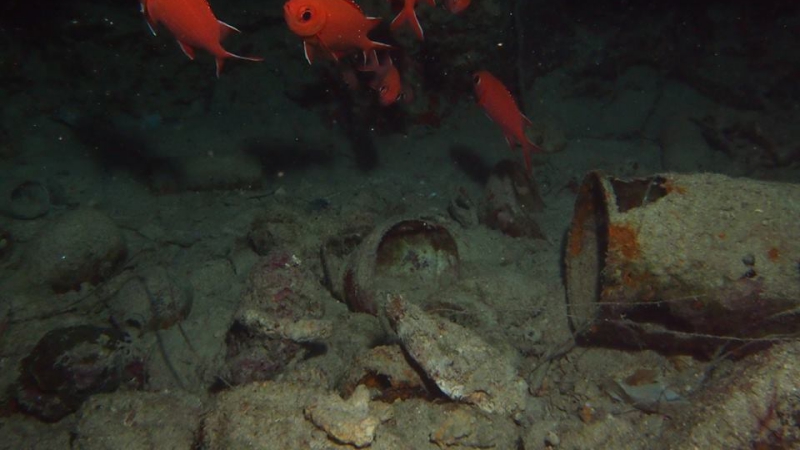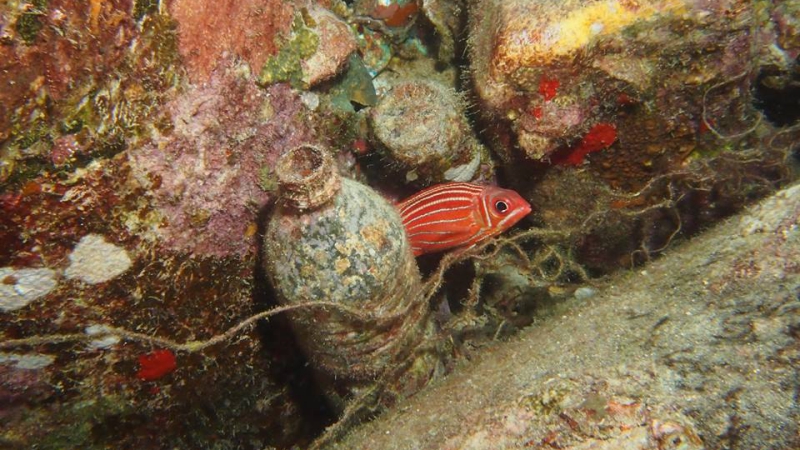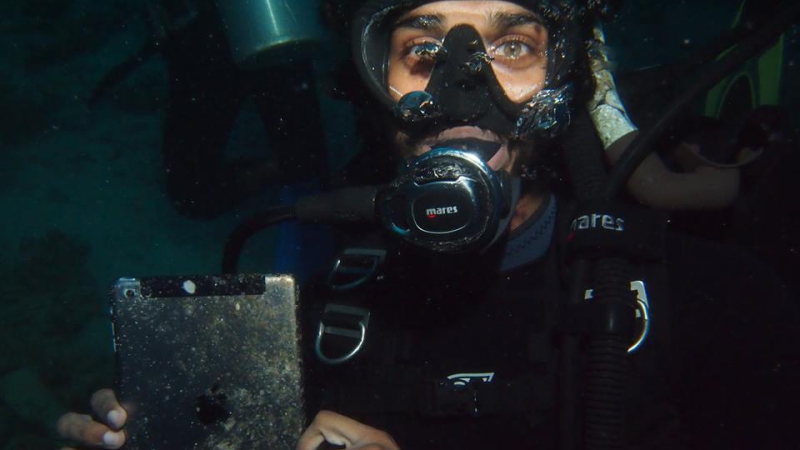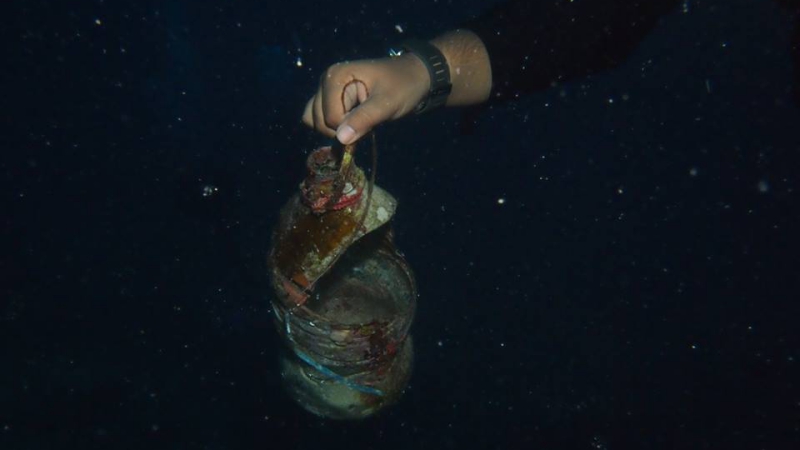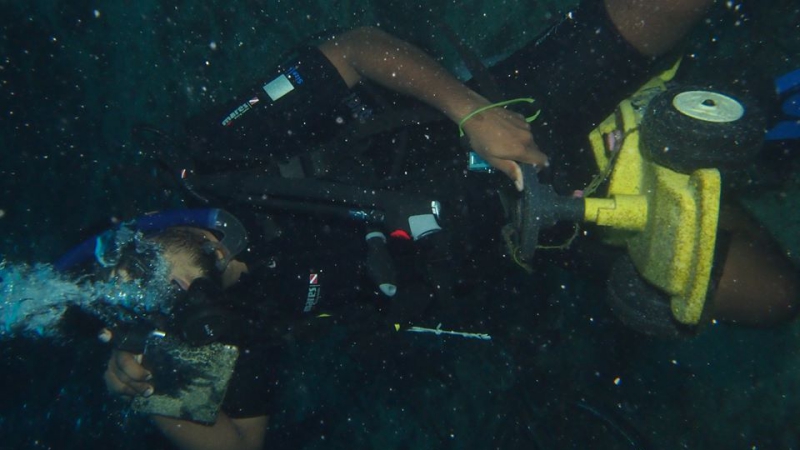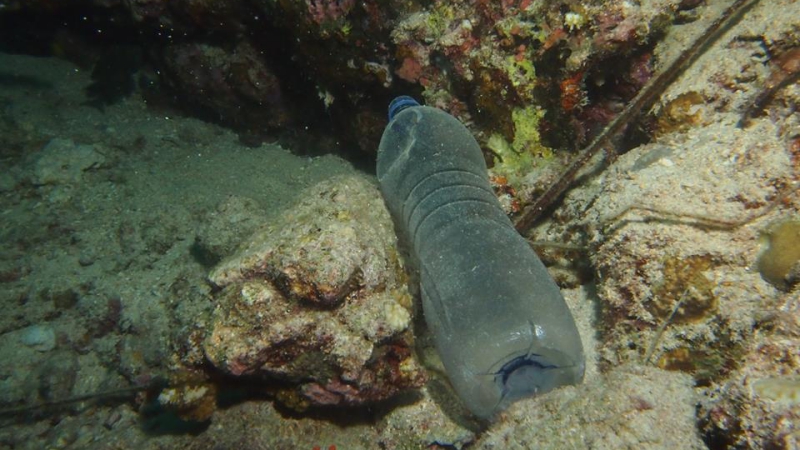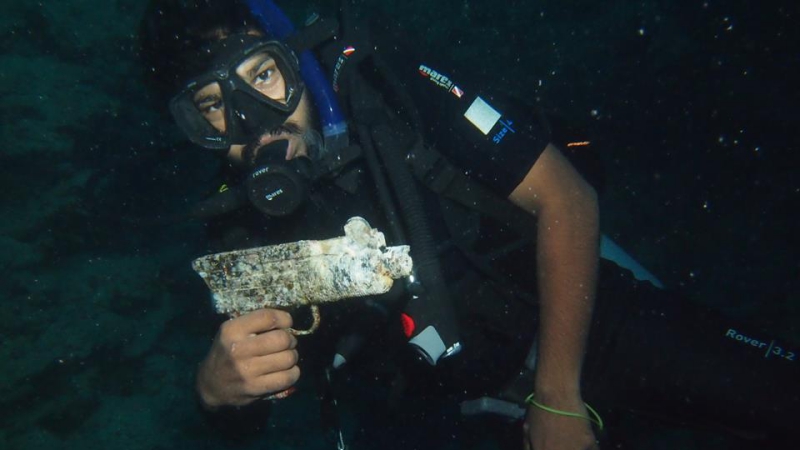President Mohamed Nasheed recognised World Food Day this week by inaugurating the Coconut Planting Programme in Noonu Ken’dhikulhudhoo and diving for sea cucumbers off the island.
Recalling his 2009 underwater cabinet meeting, which drew international attention to the topic of climate change, the President’s dive honored an initiative for sustainable aquaculture in the Maldives.
For the past two years, a researcher known as Kandholhudhoo Dombe has harvested sea cucumbers in Ken’dhikulhudhoo lake and sold them on the international market, namely to Singapore and Hong Kong, MP for the area, Ahmed Easa, told Minivan News.
“Dombe did research on sea cucumbers 20 years back, and finally, over the last few years the research has become successful,” said Easa. “We are exporting quite a lot of these, and I believe that with the government’s support we have a good opportunity to develop agriculture in the Maldives.”
Sea cucumbers are bottom-dwelling animals enjoyed most commonly in Asian countries. The species is said to have nutritional and pharmaceutical values.
The government yesterday signed a contract establishing a formal cooperative relationship between Masmeeru Investments and the Noonu Ken’dhikulhudhoo island council. Under the agreement, the lake will be used for 20 years to harvest sea cucumbers, although the lease price will be re-negotiated with the community every five years.
The project comes at no cost to the community, and Dombe is responsible for any environmental or legal damages incurred. Dombe is also required to contribute a minimum of Rf 50,000 (US$3200) annually towards community projects on the island.
The contract has also opened up job opportunities. Easa said that new staffing needs will provide between 10 and 20 jobs for locals seeking employment.
“The government wants to do this properly. Currently, the community is receiving Rf 4-5 million (US$260,000-325,000) in profits annually from the project. It’s time to invest more, and we want to protect both sides,” Easa said.
Approximately 6 tons of Maldivian sea cucumbers with a value of US$12 million are exported annually. They are currently selling for between US$130-$150 per kilogram on the international market. Locally, one cucumber sells for Rf3.
All in the timing
Easa said the initiative comes at an important time for the Maldivain economy. Although leading economic contributor tourism is expanding, the Maldives’ most profitable export industry, fishing, is entering troubled waters.
In an interview with Minivan News, Felivaru’s Deputy General Manager Mohamed Waheed observed that the Maldivian tuna catch has fallen from “very high” figures in 2005-2006 “to now less than it was in 1995-1996.”
“The main thing is that the pattern of fishing changed,” Waheed said at the time. “May to August is the low season, but we can usually still catch fish in the southern waters of the country. But this season it did not happen – we had hardly any fish in the north, and very little in the south.”
Competition from the foreign market is also cutting into local fishing profits. While fresh local fish costs between Rf18-20, the same fish tinned abroad and imported back to the Maldives costs Rf11.
Noting the struggles of the fishing industry, Easa called agriculture the next big economic contributor.
“Tourism and fishing are declining, we need another way to provide income. Sea cucumbers have a bright future. All you have to do is drop the seeds in a lagoon or a lake and let them grow for eight to twelve months,” he said.
During the events on Ken’dhikulhudhoo, President Nasheed noted that the government plans to open the fisheries sector, especially the aquaculture and mari-culture fisheries, for investors. He observed that the Maldives was “wasteful by neglecting the potential use of various products of the palm tree,” and needed to capitalise on its natural and man-made resources to meet daily requirements and generate income-boosting activity.
Overcoming obstacles
The US State Department’s profile of the Maldives notes that agriculture makes up a mere two percent of the nation’s GDP, and that the soil has traditionally supported only subsistence crops such as coconut, banana, breadfruit, papayas, mangoes, taro, betel, chilies, sweet potatoes, and onions.
The report also observes that the 2004 tsunami contaminated many groundwater reserves with salt water. The U. S. government recently contributed US$7.1 million towards improving water systems in Lhaviyani Hinnavaru and Haa alif Dhihdhoo islands.
According to Easa, hydroponic methods may overcome these obstacles.
“The government is doing a good job of informing the community on how to grow products in different systems,” he said. “At yesterday’s festivities, there were stalls instructing locals on how to grow vegetables and fruits at home using these methods.”
Organic farming methods could also yield positive positive results. Island Organics Maldives Pvt. Ltd., which was founded in 2007, supports the Maldives’ first organic farm on Baa Maarikilu.
Company founder Shahida Zubair told Minivan News that the farm uses local resources to fertilise crops by composting shredded leaves, branches and coconut husk, manure from chicken, seaweed from Thulhaadhoo and Hithaadhoo, and kitchen waste.
“We have been trying over four years to fertilise our poor soil organically and now we are successful because the soil is beginning to be alive with micro-organisms and mycorrhizal fungi and earthworms,” she said. Zubair indicated that the soil results can be achieved elsewhere and will improve crop growth.
The President also attended celebrations in Thoddoo of Alifu Alifu Atoll, where he inaugurated the tele-medicine unit at the Thoddoo Health Centre, and helped lay the foundation for new classrooms at Alifu Alifu Thoddoo School.
Likes (3)Dislikes
(3)Dislikes (0)
(0) 